Activism: Women's Rights
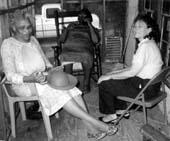
Vivian Leburg Rothstein
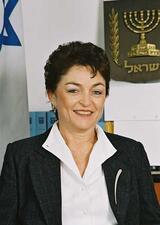
Saviona Rotlevy
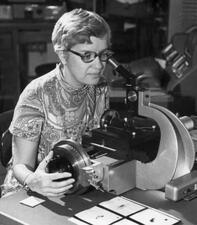
Vera Cooper Rubin
Russian Immigrants in Israel
Approximately 350,000 Jewish women moved to Israel from the Former Soviet Union after 1989. Among the key issues they faced were occupational downgrading, sexuality and family life, sexual harassment, marital distress, and single-parent families.
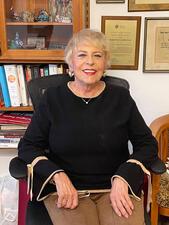
Marilyn Safir
Marilyn Safir is an Israeli-American psychologist who played a critical role as a feminist activist in sparking the Israeli women’s movement and in establishing the academic field of women’s studies in Israel. Her academic career has focused on sex, sexuality, and gender.
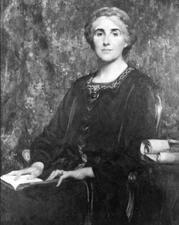
Nina Ruth Davis Salaman
Nina Salaman was a well-regarded Hebraist, known especially for her translations of medieval Hebrew poetry, at a time when Jewish scholarship in Europe was a male preserve. In addition to her translations, she published historical and critical essays, book reviews, and an anthology of Jewish readings for children, as well as poetry of her own.
Salonika: Female Education at the end of the Nineteenth Century
Salonika was a vibrant center of Sephardic Jewish life in the Ottoman Empire, at some points even boasting a majority Jewish population. The Alliance Israélite Universelle, a French Jewish educational program, was established to westernize, or in their words “regenerate,” Sephardi and Mizrahi Jewish communities. The Alliance established dedicated girls’ schools to give young Jewish women a secular education.
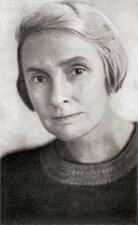
Jessie Ethel Sampter
Jessie Sampter was an important Zionist activist, writer, and educator. As an influential member of Hadassah, the woman’s Zionist organization, she advocated for an inclusive vision of Zionism. Putting her ideas into practice, she moved to Palestine in 1919. Although Sampter’s disability and non-normative family structure did not align with Zionist ideals of strong, healthy bodies, she championed Zionism, though not always uncritically.
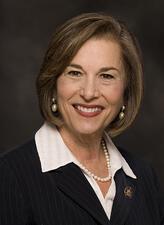
Jan Schakowsky
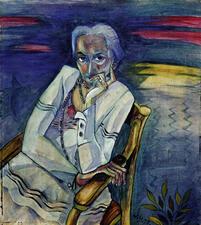
Rosa Schapire
Rosa Schapire was one of the few women to pursue art history studies at a time when the discipline itself was still in its infancy. Her foray into this male-dominated profession was indicative of her allegiance to feminist aspirations to equal opportunity and adult suffrage.
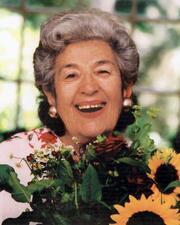
Miriam Schapiro
Miriam Schapiro helped pioneer the feminist art movement, both through her own pushing of creative boundaries and by creating opportunities for other women artists. Starting in 1970, Schapiro raised women’s consciousness through her writing, painting, printmaking, teaching and sculpture. She lectured extensively on feminist issues to professional conferences, university audiences, art classes and women’s groups.
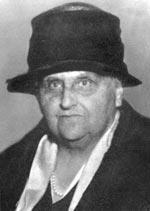
Therese Loeb Schiff
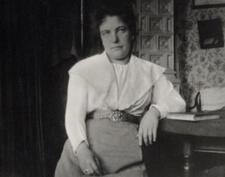
Therese Schlesinger-Eckstein
Therese Schlesinger’s life was characterized by her lifelong passion for learning and her endeavor to improve the plight of working-class women. She was a dedicated feminist who was inspired by the ideals of socialism, struggling to combine both of these political passions within the Austrian Social Democratic Party.
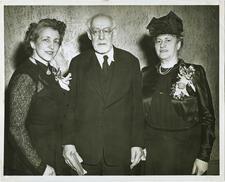
Ottilie Schönewald
Deeply involved in several women’s and Jewish organizations, Ottilie Schönewald was an activist who became a politician to advance her causes. She worked with the League of Jewish Women and helped Jews emigrate from Nazi Germany. After Schönewald and her family fled in 1939, she continued her social work during and after the war.
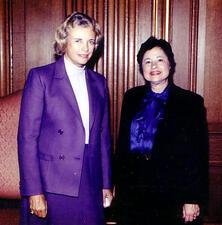
Florence Schornstein
Felice Nierenberg Schwartz
Recognizing the hurdles that can stop women from achieving, Felice Nierenberg Schwartz founded Catalyst, an organization to help women with children enter the workforce, created a national network of resource centers and programs to enable women to work part time, and advocated for working mothers in her widely published writing.
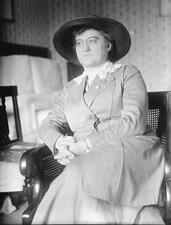
Rosika Schwimmer
Adolphine Schwimmer-Vigeveno
Adolphine Schwimmer-Vigeveno was an active member of the Jewish Women’s Council in the Netherlands in the decades before the outbreak of World War II. She served as the general editor of its periodical and later as its president, stimulating solidarity among Jewish women, organizing Jewish social work, and exploring contemporary Jewish issues, including Zionism.
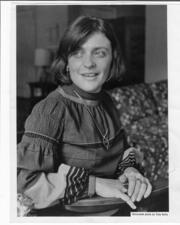
Barbara Seaman
Muckraking journalist Barbara Seaman survived a tumultuous childhood in New York City to become a bestselling author, a prominent second wave feminist, and, as a founder of the women’s health movement, an architect of informed consent. A lifelong scourge to the pharmaceutical industry, Seaman exposed the dangers of the high-dose birth control pill, hormone replacement therapy, and male doctors’ hubris.
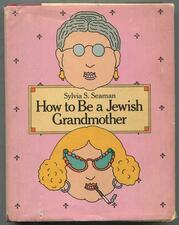
Sylvia Bernstein Seaman
“I’m still capable of marching. I marched sixty years ago. I just hope my granddaughter doesn’t have to march into the next century.” Sylvia Bernstein Seaman was a pioneering feminist of the twentieth century who broke the silence around breast cancer through her frank writing.
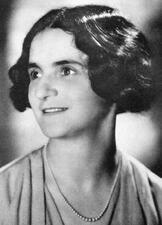
Toni Sender
Toni Sender’s wide-ranging quest to save the world led her from the union hall to the German Parliament (as a socialist) and finally to the United Nations. She helped found Germany’s Independent Social Democratic Party (USPD) and served in the German Parliament from 1924 to 1933. After fleeing to the United States in 1933, she joined the board of the German American Council for the Liberation of Germany from Nazism, and after 1944 she became active with the UN, retiring in 1956.
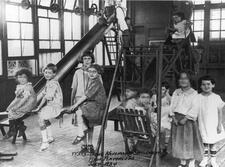
Settlement Houses in the United States
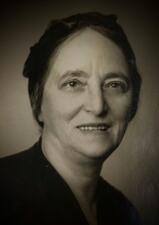
Chana Shpitzer
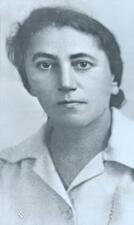
Miriam Shtarkman-Verlinsky
Miriam Shtarkman-Verlinsky was a trailblazer for women in the legal field in Israel, with a lifelong dedication to Zionism and women’s rights. Shtarkman-Verlinsky was the second women to become a judge in the newly established state and the first to become a Chief Magistrate.
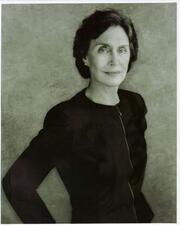
Alix Kates Shulman
Alix Kates Shulman is a radical feminist writer and activist and a leader in the second-wave feminist movement of the 1960s through 1980s. She is best known as the author of “The Marriage Agreement” (1970) and the best-selling Memoirs of an Ex-Prom Queen (1972), which was heralded as the “first important novel of the Women’s Liberation movement.” She was honored with a Clara Lemlich Award for a lifetime of social activism in 2018.


